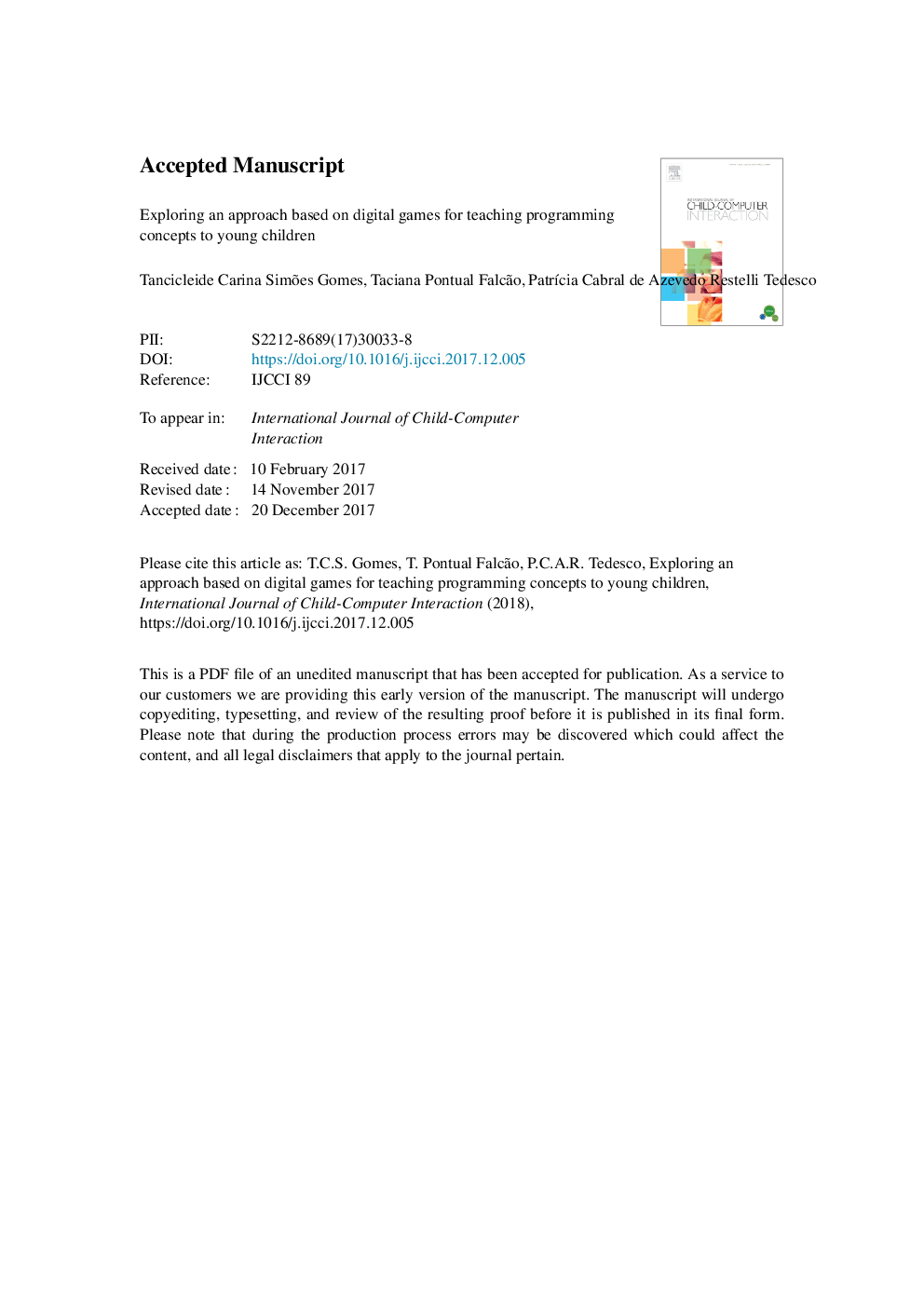| Article ID | Journal | Published Year | Pages | File Type |
|---|---|---|---|---|
| 6795267 | International Journal of Child-Computer Interaction | 2018 | 18 Pages |
Abstract
The inclusion of programming topics in the initial grades of school gives rise to debates about the best ways to teach these contents. Programmable toys, activities with physical materials and various games are some of the resources available. Amongst those, digital games possess important elements for learning programming, such as incremental challenges, personalised immediate feedback, and visualisation of the consequences of errors. In this work, we explore the results of an experience based on digital games for teaching programming concepts to young children. Our aim was to investigate how such concepts are presented in the games' interface and what is the impact of the interaction elements on children's comprehension. This work took place in Informatics classes of a Brazilian school, with 42 students aged 5 to 7 years. Data were collected through participant observation, and semi-structured and unstructured interviews, focusing on the main difficulties faced by the children when interacting with the games. Topics, skills and competences were considered according to the syllabus proposed by Computing at School, and encompassed sequences of instructions, repetition loops and conditionals. Results indicate a satisfactory understanding of sequences of instructions and conditionals, but also show challenges with respect to graphical symbols, text and interaction elements identified as hard to understand for the children, making the support of an adult fundamental. Another critical point was the comprehension of the concept of repetition, which made the use of complementary approaches necessary, in particular unplugged playful activities. This shows that despite the increasing number of available digital games that involve programming basics, good solutions for conveying the main concepts to young children have not yet been found, demanding further investigation, possibly towards structured hybrid approaches combining digital games and unplugged activities.
Related Topics
Physical Sciences and Engineering
Computer Science
Human-Computer Interaction
Authors
Tancicleide Carina Simões Gomes, Taciana Pontual Falcão, PatrÃcia Cabral de Azevedo Restelli Tedesco,
